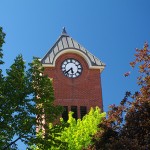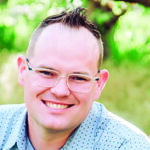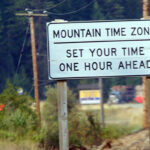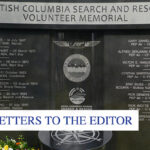Home »

Raymond Chandler’s impact still resonates
Book Review
By Derryll White
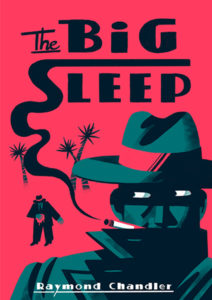 Chandler, Raymond (1939). The Big Sleep
Chandler, Raymond (1939). The Big Sleep
“Dead men are heavier than broken hearts.”– Raymond Chandler.
‘The Big Sleep’ was Raymond Chandler’s first published novel, featuring Philip Marlowe, a 38-year-old private detective. Written before the huge impacts of the Second World War, the novel portrays a grotty, seamy Los Angeles as it was in the 1930s. Marlowe became, and still is, the measure against which more recent detectives – Robert B. Parker’s Spenser and Robert Crais’ Elvis Cole come to mind – are judged 75 years later.
Chandler introduced ‘hardboiled crime’ as a writing genre. The title is an old euphemism for death, and a number of people do die. But Chandler does not dwell on the blood and gore that became part of the genre later.
‘The Big Sleep’ was adapted for film twice, in 1946 and again in 1978. There are a few loose ends in the plot, such as who killed the chauffer. When Chandler was asked about this during one of the screen adaptations, his reply was that he had no idea. Given that, the story still hangs together in a complex weave of characters and secrets.
Raymond Chandler was a writer and a stylist. He had as big an impact on American fiction as more well-known authors like William Faulkner. Chandler introduced a new way of writing about America, exposing the corruption of the post-prohibition criminals and rule benders, but not sliding off into Mafia and organized crime scenarios. The presentation of pornography is a time capsule to a much earlier time, given today’s internet content.
Raymond Chandler is certainly worth reading for anyone interested in the crime/whodunit aspect of literature. And ‘The Big Sleep’ is relevant to anyone interested in how our dialogue about cities and politics evolved, showing a world similar in some ways but ultimately much different from that which we now inhabit.
****
Excerpts from the novel:
INFLUENCE – “He had a police record.”
She shrugged. She said negligently: “He didn’t know the right people. That’s all a police record means in this rotten crime-ridden country.”
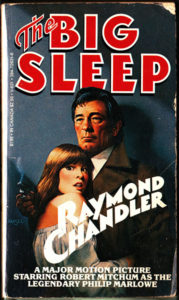 LOS ANGELES – Taggart Wilde, the District Attorney, lived at the corner of Fourth and Lafayette Park, in a white frame house the size of a carbarn, with a red sandstone port-cochere built onto one side and a couple of acres of soft rolling lawn in front. It was one of those solid old-fashioned houses which it used to be the thing to move bodily to new locations as the city grew westward. Wilde came of an old Los Angeles family and had probably been born in the house when it was on West Adams or Figueroa or St. James Park.
LOS ANGELES – Taggart Wilde, the District Attorney, lived at the corner of Fourth and Lafayette Park, in a white frame house the size of a carbarn, with a red sandstone port-cochere built onto one side and a couple of acres of soft rolling lawn in front. It was one of those solid old-fashioned houses which it used to be the thing to move bodily to new locations as the city grew westward. Wilde came of an old Los Angeles family and had probably been born in the house when it was on West Adams or Figueroa or St. James Park.
CHARACTERS – Another man sat at the corner of the desk in a blue leather chair, a cold-eyed hatchet-faced man, as lean as a rake and as hard as the manager of a loan office. His neat well-kept face looked as if it had been shaved within the hour. He wore a well-pressed brown suit, and there was a black pearl in his tie. He had the long nervous fingers of a man with a quick brain. He looked ready for a fight.
MARLOWE – I smell of policemen,” I said. “I’m too tired to talk, too tired to eat, too tired to think. But if you think I’m not too tired to take orders from Eddie Mars – try getting your gat out before I shoot your good ear off.”
“Nuts. You ain’t got no gun.” He stared at me levelly. His dark wiry brows closed in together and his mouth made a downward curve.
“That was then,” I told him. “I’m not always naked.”
He waved his left hand. “Okay. You win. I wasn’t told to blast anybody. You’ll hear from him.”
“Too late will be too soon,” I said….
WOMEN – It was raining again the next morning, a slanting gray rain like a swung curtain of crystal beads. I got up feeling sluggish and tired and stood looking out of the windows, with a dark harsh taste of Sternwoods still in my mouth. I was as empty of life as a scarecrow’s pockets. I went out to the kitchenette and drank two cups of black coffee. You can have a hangover from other things than alcohol. I had one from women. Women made me sick.
LOS ANGELES – My rubber heels slithered on the sidewalk as I turned into the narrow lobby of the Fulwider Building. A single drop light burned far back, beyond an open, once gilt elevator. There was a trainshed and a well-missed spittoon on a gnawed rubber mat. A caser of false teeth hung on the mustard-colored wall like a fuse box in a screen porch. I shook the rain off my hat and looked at the building directory beside the case of teeth. Numbers with names and numbers without names. Plenty of vacancies or plenty of tenants who wished to remain anonymous. Painless dentists, shyster detective agencies, small lick businesses that had crawled there to die, mail order schools that would teach you how to become a railroad clerk or a radio technician or a screen writer – if the postal inspectors didn’t catch up with them first. A nasty building. A building in which the smell of stale cigar butts would be the cleanest odor.
AMERICA – “I’m a copper,” he said. “Just a plain ordinary copper. Reasonably honest. As honest as you could expect a man to be in a world where it’s out of style. That’s mainly why I asked you to come in this morning. I’d like you to believe that. Being a copper I like to see the law win. I’d like to see the flashy well-dressed mugs like Eddie Mars spoiling their manicures in the rock quarry at Folsom, alongside of the poor little slum-bred hard guys that got knocked over on their first caper and never had a break since. That’s what I’d like. You and me both lived too long to think I’m likely to see it happen. Not in this town, not in any town half this size, in any part of this wide, green and beautiful U.S.A. We just don’t run our country that way.”
 – Derryll White once wrote books but now chooses to read and write about them. When not reading he writes history for the web at www.basininstitute.org.
– Derryll White once wrote books but now chooses to read and write about them. When not reading he writes history for the web at www.basininstitute.org.
